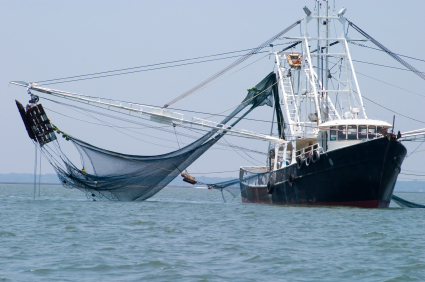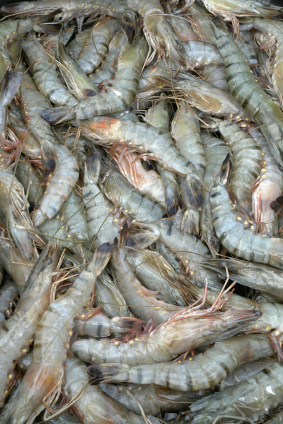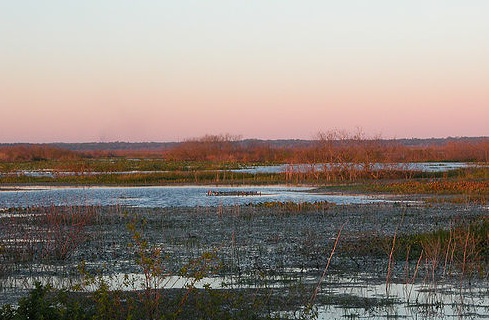Reflections in the Wake of the Gulf Coast Spill -Part 2
Shrimping Boat
It’s also ironic that this spill happened the week that we were celebrating the 40th anniversary of Earth Day. Last week, I posted an entry to my catering blog looking back on the first Earth Day, which I witnessed as a young college student. After I posted, I felt pleased. Here is an instance where we can actually see some progress in our history, I thought. I remember what the air was like in Los Angeles in those days. I remember the oil spill off the coast of Santa Barbara, a precipitating event to the original Earth Day- the heartbreaking scenes of ocean birds drenched in thick black oil, many of whom did not survive that spill. Surely we’ve come a long way, I thought.
That oil spill, as dreadful it was, washed up on the wide sandy shores of southern California. That will not be the case on the Gulf Coast. Louisiana is not quite so (if you’ll excuse me using the word) fortunate in this respect. The wetlands that make up the shoreline of Louisiana are a craggy mix of marshlands and bayous interconnected by canals and waterways. They make up 40-45 % of all wetlands in the lower 48 states, and have historically offered a natural buffer to the hurricanes that hit the region. It is home to a vast array of wildlife. They have suffered mightily at the hand of the oil and gas, and other heavy industry. The equivalent of a football field is eaten up-just disappears- every 20 minutes. They have suffered at the hands of the Army Corps of Engineers’ attempts to “control” the Mississippi River (a New Orleans friend of mine smirked and snarled “you can’t control that river” when I used that phrase in his presence a couple of years ago), which results in the suppression of the natural restoration of the wetlands through silt deposits of the overflowing river.
When I was a girl I spent summers visiting my father’s family in New Orleans. One summer, when I was old enough to notice these things, I marveled at the low price of shrimp in the local grocery stores. My Uncle JuJune responded “hell, they’ll just give ‘em away if you drive a pick up truck down to the Gulf, they got so much of it.” Unfortunately, they are not quite so plentiful now.
While over a third of all the seafood consumed in this country comes from the Gulf, there have been problems. The residual chemical fertilizers, used in the corn and wheat fields of the heartland, wash down the Mississippi River causing huge dead zones in the Gulf. Still, the commercial fishing industry in the state accounts for over 300 million dollars of the state’s economy. In the past couple of years, Gulf Coast oysters have picked up the slack in the oyster market, as there have been problems with Chesapeake Bay oysters. And as most any Southerner will tell you, Gulf shrimp and oysters have a sweet, delicate flavor unique to the area because of the microorganisms in the Gulf they eat.
Well, I could go on and on. I love this area, even though I don’t currently live there. I sharply responded to many people after Katrina, when they questioned why anyone would want to live there, that New Orleans, and Southern Louisiana, has given much more to this nation than this nation has given back. Indeed, the nation would never have been built without the port of New Orleans at the mouth of the Mississippi. It was the major port of entry and highway leading into the heartland of this continent before there was a railroad, or an interstate highway system- a port of entry that remains important today. Not to mention the great regional cuisine, the culture, and jazz- the only indigenous art form born in this country
So here’s a question rolling around in my head now- don’t we, as a nation, have an obligation to fix what we have destroyed? And isn’t it time America seriously invested in alternative energy sources?
Louisiana Wetlands Photo Courtesy of thereseflanagan.com









